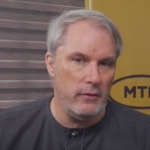
The implementation of 5G technology in Ghana faces significant challenges related to delayed regulatory processes, low device accessibility, and the enduring reliance of the population on older network infrastructure, according to Stephen Blewett, Chief Executive Officer of MTN Ghana.
Speaking on Joy FM’s Personality Profile with Lexis Bill, Mr. Blewett acknowledged the long journey ahead for Ghana to fully realize the transformative impact of the fifth-generation network technology.
“I think we’ve got a long way to go in 5G. I think it’s unfortunate that it’s taken a while for us to get there,” Mr. Blewett stated, alluding to the regulatory and licensing steps required for commercial rollout.
The Device Dilemma: Only 1 Million 5G-Ready Devices
While 5G promises speeds up to 100 times faster than current 4G networks and ultra-low latency critical for industrial automation and remote medical services, the immediate consumer uptake faces a substantial hurdle in device penetration.
Mr. Blewett revealed a key data point illustrating the current market limitation, “It’s important to understand that in terms of the number of devices, there’s only a million devices that can use 5G as we currently sit.”
Given Ghana’s estimated population of over 34 million and a mobile penetration rate exceeding 120%, the figure of one million 5G-ready devices represents a tiny fraction of the potential user base.
This low penetration rate significantly limits the immediate commercial viability of an expensive nationwide 5G infrastructure investment.
The 3G/4G Migration Bottleneck
The MTN Ghana CEO stressed that the push for 5G must not overshadow the necessity of migrating millions of customers from older, slower networks. He pointed out that a large segment of the market still uses legacy infrastructure.
“But we have a lot of people still sitting on 3G, then we have to move up to 4G, and so that step has to happen,” he explained.
This need for phased technological advancement is a major operational challenge for MTN, which serves as Ghana’s largest mobile network operator.
The company must balance significant capital expenditure to support the growing demand for faster 4G (LTE) data—which currently handles the bulk of data traffic—while preparing the financial and infrastructure ground for the next-generation 5G launch.
Despite these hurdles, Mr. Blewett affirmed 5G’s critical role in national development.
“5G as a technology is important for expansion of our economy but it doesn’t mean 5G shouldn’t come.”
Industry analysts suggest that for 5G to achieve its potential in Ghana—particularly in high-growth areas like FinTech, e-commerce, and the burgeoning AI sector—the cost of 5G-compatible smartphones must fall substantially, and the government must provide regulatory clarity on spectrum allocation and pricing to give operators the confidence to commit the necessary multi-million dollar investments in network equipment and fiber backbone infrastructure.